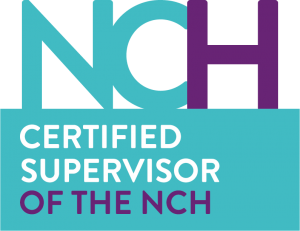A history of Harley Street and its future as a centre of excellence

A history of Harley Street and a brief personal view into its effect.
When walking along Harley Street you can’t fail to be impressed with the architecture and its history. World famous as a centre of excellence for physicians, today there are some 3000 people employed in the Harley Street area within the private clinics and therapy rooms stretching from Cavendish Square Gardens near Oxford Street to the south as far as Marylebone Road and Regent’s Park in the North, nearly a kilometer in length. Harley Street is at the centre of the Westminster conservation area which was designated as such in June 1968. There is said to be a Harley Street effect, what is this exactly and is it warranted? First, let’s look at the history of the area…
The history of Harley Street can be traced back to the 11th century where the area was divided between 2 manors, Lilestone and Tyburn. Most of the area was then forest and marshland and formed a part of the great forest of Middlesex. There had been settlements in the area in Saxon than Medieval periods, in fact the church of St John the Evangelist was built around 1200 but was demolished later around about 1400 and a new church, St Mary’s was built in its place. This saw the village of Tyburn change its name to St Mary’s which later became Marylebourne. The land has changed hands many times since then but among its notable owners were Royalty, Henry VIII and James I. Development of the entire area was slow due to successive economic recessions and international war but, by 1746 the area south of Harley Street as far as Cavendish Square Gardens had indeed begun its development. The areas urbanisation crawled further northwards continuing gradually but steadily, the old Manor house finally demolished in 1791 and so by 1799 the development of the entire area was largely, and significantly, complete.
It was, however, in the mid-19th century that the area first became associated with the medical profession as the city’s medical consultants followed one another and the fashion to move into the southern part of Harley Street close to Cavendish Square, the most prestigious part of the development. There are a number of reasons which influenced the pull of physicians to Harley Street, some because of the quality of housing, some because of the central location and access to railway links but as more and more doctors began to appear they invited colleagues to work with them in practice, clients following and soon the area thrived as a medical centre of excellence. The Royal Society of medicine opened its doors close by in 1912 where it remains today at 1 Wimpole Street. Florence Nightingale was Superintendent of the Establishment for Gentlewomen at No. 1 Harley Street in 1853. In 1879 the Harley Street estate passed to Baroness Howard de Walden in whose family it remains today. During the 1890s and 1900s many of the Georgian houses in Harley Street were rebuilt in a more flamboyant late Victorian and Edwardian style which reflected the architecture of the time a large number of these can be seen at the southern end of Harley Street. Cavendish Square had become a magnet for the wealthy physician. During the Second World War significant bombing of the area allowed the addition of different forms of 20thcentury architecture and buildings to be erected which certainly stand out when walking in the area. If you happen to be in the area, take a walk down the street and see the differing architecture of the railings and boundary walls which contribute to the character of the buildings. The traditional art work of the railings as well as the cast-iron lamp brackets which used to suspend gas lamps over the entrance to the many buildings differ significantly to the eye. Some other highlights include the oval red post-boxes, sculptures carved in the brickwork and mosaic tiling lying at the entrances of many buildings – take time to rest in the green open space of Cavendish Square Gardens and watch the world walk by.
Within the Harley Street conservation area there is now a mixed demographic, yet if we consider only Harley Street itself there is a mixture of residential and offices, but still today it is occupied predominantly by the health-based industry.
What is the impact of the Harley Street reputation?
The Oxford dictionary defines a reputation as “a widespread belief that someone or something has a particular characteristic…” Of course the reputation of being a centre of excellence for the medical and healthcare profession has taken some 200 years to grow, yet is the reputation it enjoys today likely to continue into the future? This is a question that Clinical London also asks whilst acknowledging its thriving business, “while the number of bespoke tailors on Savile Row may be diminishing; and newspaper production has now moved away from Fleet Street, Harley Street continues to enjoy its long and well-earned prestigious repetition for private healthcare.” It’s an unfair comparison of course, newspaper equipment and links to the motorways demanded change and the competition for cheaper clothing driving imports from the East reducing the demand for Saville Row, yet Harley Street is still able to practice its talking therapies without any of the pulls on other industries.
The Royal Society of medicine led the discussion on this very topic with their report “the future of Harley Street” which was published on 7 May 2014. The key findings of this report were:
- 69.3% of healthcare practices had seen increases in client numbers in the past 12 months.
- 72.5% of healthcare practices expect to see increases in patient numbers over the next 12 months, significantly no-one anticipated decline.
- 10% of Harley Street client’s traveled from international locations.
Other significant comments were:
- The lack of growth in the UK private patient market and the declining health insurance coverage with the main external market factors impacting on demand for Harley Street services.
- The main barriers to growth in Harley Street practices were the high costs of running a private practice in the area, the pressure on fees and charges from insurance companies and the constraints on development due to the nature of the buildings.
- The industry considered that clients perceive Harley Street as the place to go to find the best healthcare professionals.
- The continued reputation enjoyed by Harley Street depends directly upon the continuing professional high-quality of its practitioners.
So why work on Harley Street? – A personal reflection.
Although my time is split between working as a Clinical Hypnotherapist on the Avenue in Southampton and on London’s Harley Street, I must say that I absolutely adore the time that is spent in the capital. When working on the street itself I find that its significance in health care history really makes me feel proud to be a part of the continuing history of healthcare professional excellence today. Before I was able to practice on the street I needed to provide evidence of my professional credibility, my qualifications and my many years of experience. There is a certain prestige, that certain feeling when walking through Cavendish Square Gardens to the practice and knowing that clients seek your professional expertise which, is one of the reasons for seeking a practitioner from the street, the guarantee of excellence.
In today’s modern digital world, however, this excellence can also be effortlessly and easily checked through such sites as (using my own name as an example):
http://www.hypnotherapists.org.uk/therapist-finder/view/plid/4982/
http://www.hypnotherapy-directory.org.uk/hypnotherapists/iain-lightfoot?uqs=544826
There are, of course, a number of practitioners that solely work on the street and do not practice elsewhere, yet there are a substantial number who work in 2 locations. So, is there a difference in the therapy a client may receive on Harley Street compared to another location? I can tell you that there is no difference whatsoever in the highly effective treatments that an individual receives from me. For myself though, there is an increased overhead due to working in the location and I prefer to think that Harley Street is actually where I’m based and that I can bring Harley Street professional excellence outside of London at a reduced price due to the decreased cost in overhead. Living in London is expensive and has a differing pace of life – for this reason I choose to live and work outside of The City, reducing stress and anxiety is our business and I couldn’t imagine life without walks in the New Forest in the late evening Summer Sun or on Dartmoor in any conditions… so what about the Harley Street effect?
My future on Harley Street and of the effect?
It is true that practitioners use and capitalise on their Harley Street reputation, and why shouldn't they? We are professionals who are extremely good at what we do! For me personally I really enjoy being a Harley Street hypnotherapist; there is something extremely professionally satisfying although slightly profound about working in such an area steeped in history. It feels like I’m a defender of a reputation, ensuring that clients who seek out my expertise are never disappointed in their expectations and more so always have them exceeded. I anticipate that I will still work in a number of locations into the future, in fact I would like to take my skills, wider in the community but I’m proud and pleased that I’m also able to work in the spiritual home of hypnotherapeutic interventions. Whilst some clients are drawn to Harley Street because of the reputation, I believe that there is no better place to go to seek out the services of the very best professional experts in my field as they are defenders of quality. There absolutely is an effect on both therapist and client and I fully believe it’s justified; Harley Street equals professional and clinical expertise and will continue do so well into the future.
The law in the United Kingdom does not stipulate what qualifications a hypnotherapist should have to be considered a top professional or indeed to practice, indeed hypnosis with therapy is often mistrusted. Like any industry, there will always be rogue traders that are there for money only and who offer ineffective treatments. I would urge everyone to seek a hypnotherapist who is registered on one of the main directories, who is insured and has the National Council registration (NCH) and for complete peace of mind also is registered on the accredited register too (CNCH). Harley Street does not just allow anyone to set up practice but if you seek one of us – just have a look at their experience and qualifications. Keep enjoying the effect and the professional, personal change therapy it brings.
References:
2015. . [ONLINE] Available at :http://www3.westminster.gov.uk/docstores/publications_store/Harley%20Street%20CAA%20SPD.pdf. [Accessed 24 March 2015].
Harley Street History. 2015. Harley Street History. [ONLINE] Available at:http://www.clinicalondon.co.uk/harley-street/. [Accessed 24 March 2015].
Harley Street - Wikipedia, the free encyclopedia. 2015. Harley Street - Wikipedia, the free encyclopedia. [ONLINE] Available at:http://en.wikipedia.org/wiki/Harley_Street. [Accessed 24 March 2015].
History of Harley Street. 2015. History of Harley Street. [ONLINE] Available at: http://www.harleystreetguide.co.uk/about/History/. [Accessed 24 March 2015].
Reputation - definition of reputation in English from the Oxford dictionary. 2015. Reputation - definition of reputation in English from the Oxford dictionary. [ONLINE] Available at:http://www.oxforddictionaries.com/definition/english/reputation. [Accessed 24 March 2015].





